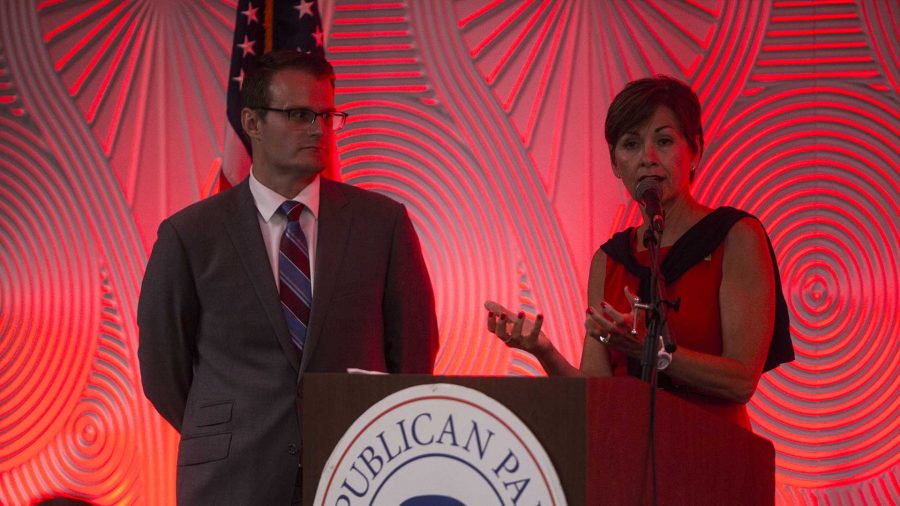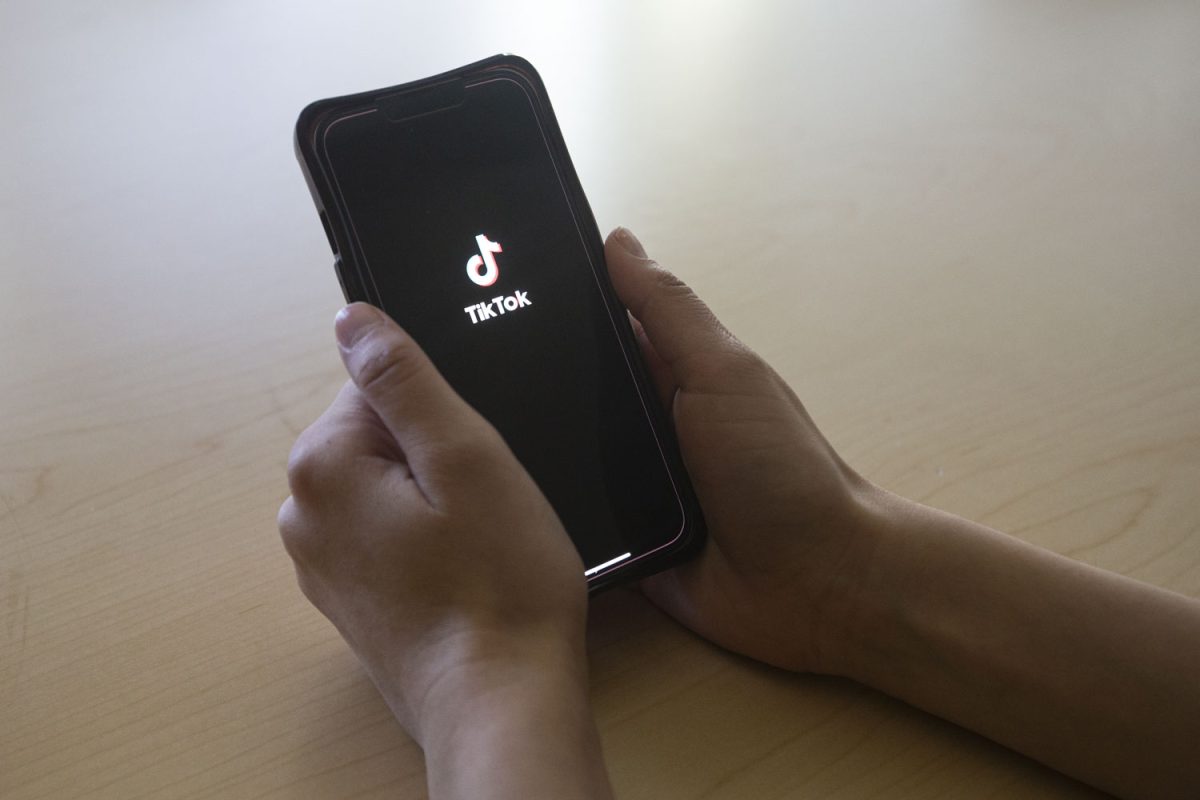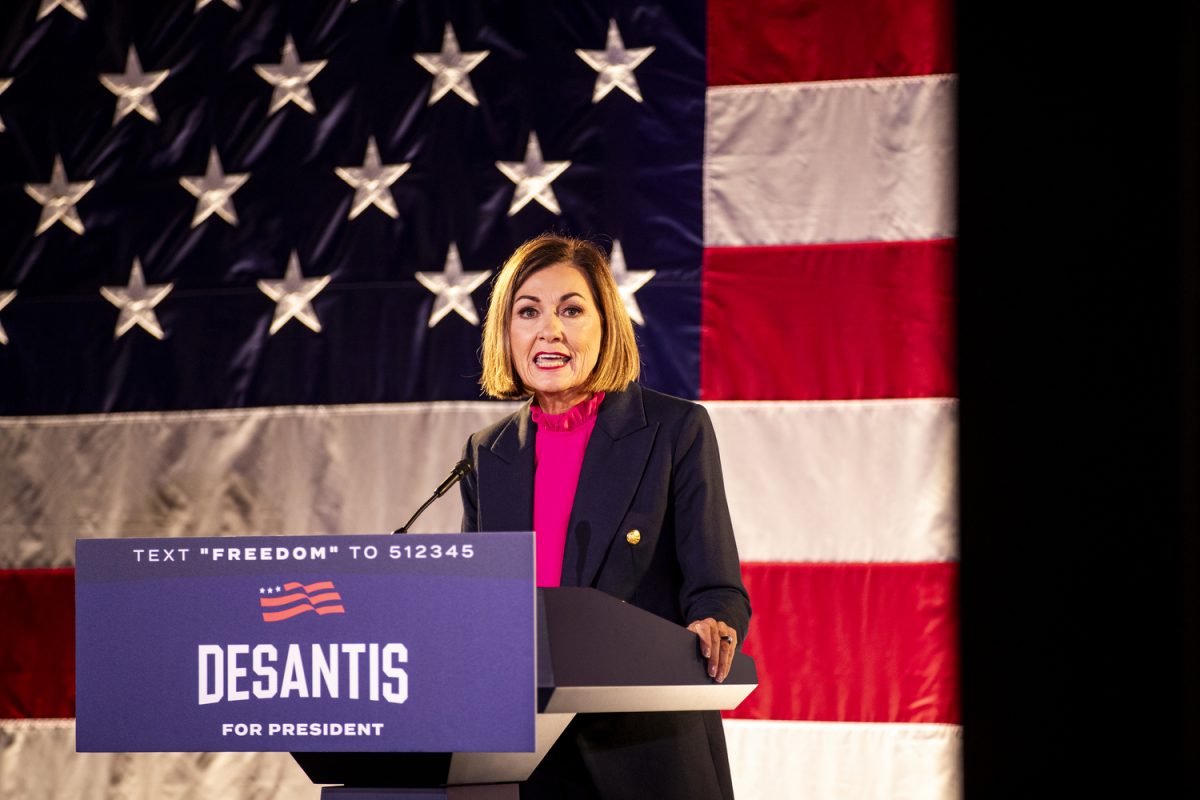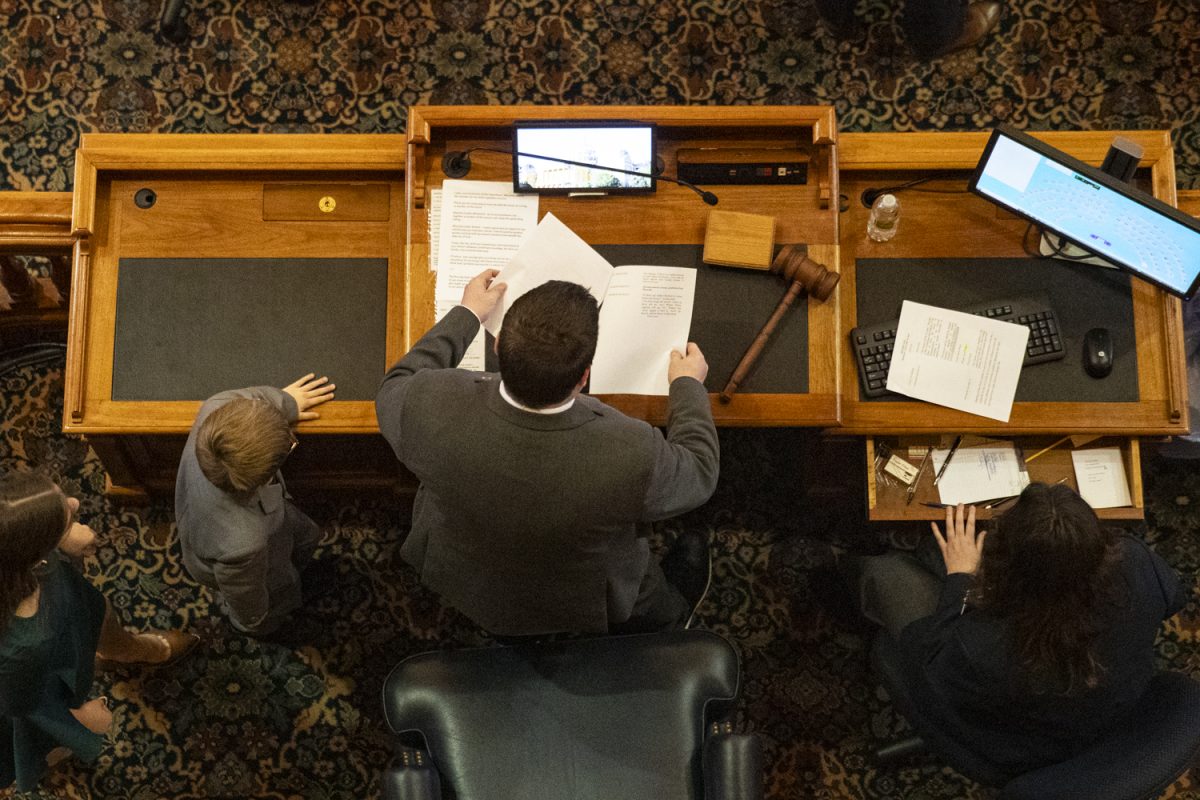Iowa Gov. Kim Reynolds’ new statewide initiative trains hotel and motel employees on how to stop human trafficking.
By Molly Hunter
The Iowa Network Against Human Trafficking and Slavery and the Nebraska Coalition on Human Trafficking recently teamed up to do the Iowa Hotel/Motel Training Project, which was announced by Iowa Gov. Kim Reynolds in a Sept. 19 press release.
“[Iowa Trafficking Network] estimates at least 50 percent of sex trafficking takes place in hospitality venues, often without the knowledge of management and staff,” the release said.
“Iowa is not immune from human trafficking,” Reynolds said in the release. “I know [the project] will support the good work we’re already doing, from the strong laws we have on the books to the Office to Combat Human Trafficking we established in the Department of Public Safety to our law-enforcement officers participating in training programs.”
“We’re very fortunate to have a lot of support from our new governor, Kim Reynolds,” said Iowa Trafficking Network board Chairman George Belitsos.
Reynolds is an honorary member of the Board of Directors.
According to the Sept. 19 release, training sessions have taken place in Des Moines on Sept. 13 and Cedar Rapids on Sept. 25.
“We now have 70 volunteers who went through the three-hour training on how to train the employees in the hotels and motels,” Belitsos said.
The Iowa network has supported several bills in the Legislature designed to address human trafficking. All, he said, have received bipartisan support, and many of them have included child-pornography and sex-abuse legislation in addition to human-trafficking
measures.
At the federal level, Sen. Chuck Grassley, R-Iowa, was involved in the creation of recent legislation to address human trafficking, most recently the Trafficking Victims Protection Act and the Abolish Human Trafficking Act.
“Sex trafficking … has been reported in communities with access to major interstates,” Grassley said in a Sept. 22 press release from his office.
According to a 2014 notice from the Human Smuggling and Trafficking Center, I-80 is a key west-east trafficking route that extends from California to New Jersey and, of course, passes through Iowa.
The Iowa Department of Transportation has also been involved with efforts to fight human trafficking in the state, because of the integral part highways play in that endeavor.
“For the last four years, we have been actively involved with making folks aware of potential human trafficking, what to look for if they do see or suspect some type of human trafficking,” said Dave Lorenzen, the chief of motor-vehicle enforcement in the Iowa DOT.
Lorenzen said the DOT works closely with the nonprofit Truckers Against Trafficking to do educational
presentations and offer people the opportunity to train on human-trafficking
awareness.
With the help of Truckers Against Trafficking, the DOT also distributes cards containing information on the telltale signs of human-trafficking.
The cards are distributed through Iowa’s 31 rest areas and are often handed out as part of commercial-vehicle inspections, Lorenzen said.
“We do 50,000 commercial-vehicles inspections annually,” he said. “Anytime we have contact with a commercial-vehicle driver we hand them a card … with some things to watch for and tell them to make a call if they see something.”
Increasing awareness is a big part of stopping human trafficking, Lorenzen said.
“People need to understand if they see something they suspect may be human trafficking, they need to call the Human Trafficking Resource Center,” he said. “It’s better to make a call that turns out to be nothing.”










